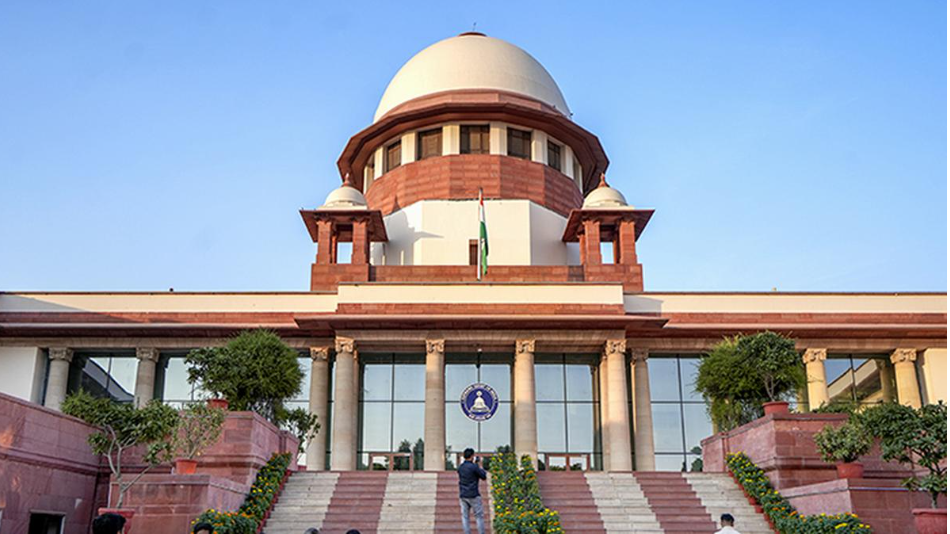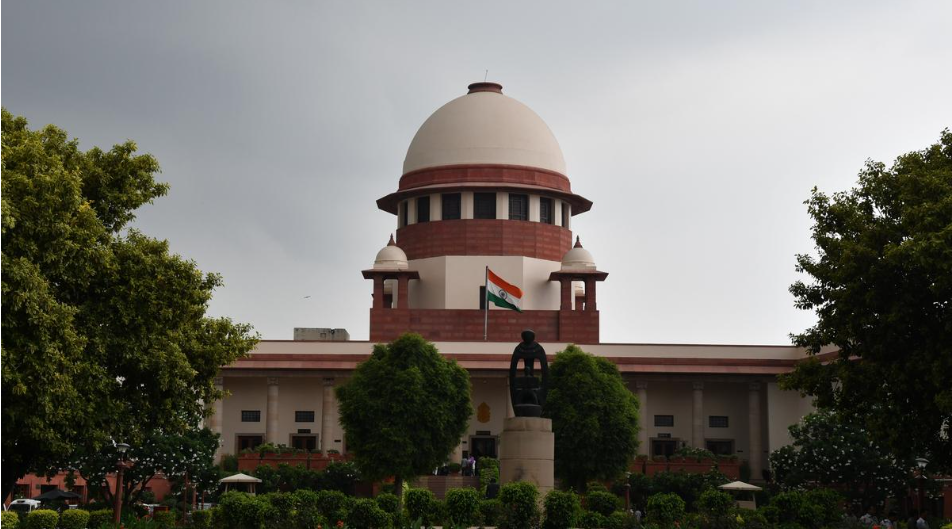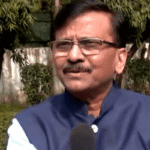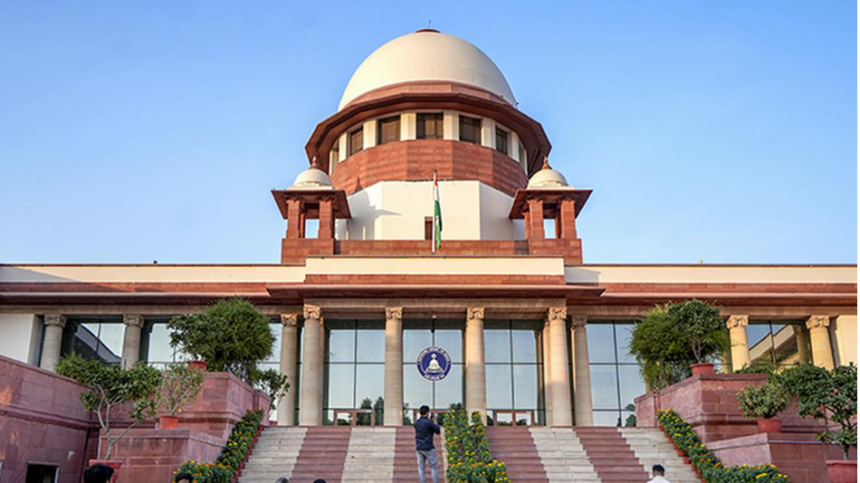Introduction to the Plea and its Significance
Supreme Court Seeks Government In a significant judicial move, the Supreme Court of India has directed the Central Government to respond to a petition advocating for chemical castration as a punitive measure for sex offenders. Along with this, the plea also calls for a complete ban on free online pornography and recommends withholding bail for individuals accused of heinous crimes against women until the commencement of their trials.
This petition comes at a time when India continues to grapple with rising incidents of sexual violence, igniting an urgent national debate on whether current punishments are sufficient to deter such acts. The Supreme Court’s decision to take cognizance of the matter reflects the growing need for addressing systemic failures and creating a safer society for women.
Background of the Petition
The petition, filed in the Supreme Court, highlights the alarming increase in cases of rape, sexual assault, and related crimes against women. It asserts that current measures, Supreme Court Seeks Governmentthough stringent, fail to act as adequate deterrents. The petition argues that extreme punitive steps, such as chemical castration, are necessary to address both the crime’s frequency and its brutality.
The petitioner emphasized three key demands:
- Introduction of chemical castration as an additional punishment for sex offenders.
- A complete ban on free access to pornography, citing its role in encouraging deviant behavior.
- Denial of bail for individuals accused of heinous crimes, Supreme Court Seeks Government ensuring swift justice and protection for survivors.
What is Chemical Castration?
Chemical castration is a non-surgical procedure in which medications are administered to suppress testosterone levels in offenders, effectively reducing sexual urges and aggression. Unlike physical castration, this process does not involve removal of reproductive organs but is temporary, Supreme Court Seeks Government dependent on regular administration of drugs.
Several countries, including South Korea, Indonesia, Poland, and some states in the United States, have adopted chemical castration for repeat sex offenders. Proponents of the measure argue that it serves as an effective deterrent and reduces the chances of repeat offenses.
However, critics challenge its efficacy and ethics, labeling it as a potential violation of human rights and bodily autonomy. The debate surrounding chemical castration is deeply complex, Supreme Court Seeks Government balancing retributive justice with reformative principles.
India’s Current Legal Framework for Sexual Offenses
Sexual offenses in India are primarily addressed under:
- The Indian Penal Code (IPC): Section 375 defines rape, and Section 376 prescribes punishments, including life imprisonment and the death penalty for particularly egregious offenses.
- The Protection of Children from Sexual Offenses (POCSO) Act: Dedicated to safeguarding minors, this Act ensures stringent punishment for offenders targeting children.
- The Criminal Law (Amendment) Act, 2013: This was introduced following the Nirbhaya case, enhancing punishments and broadening the definition of sexual assault.
Despite such laws, delays in trials, insufficient police investigations, Supreme Court Seeks Government and loopholes in the judicial process often leave survivors waiting for justice.
The plea contends that adding chemical castration will strengthen the existing legal arsenal and act as a stronger deterrent for potential offenders.  For the more information click on this link
For the more information click on this link
The Link Between Online Pornography and Sexual Offenses
The petition also calls for a complete ban on free online pornography, citing studies that suggest excessive exposure to explicit content contributes to violent behavior and desensitization toward consent.
Numerous surveys globally have explored the connection between pornography and sexual crimes. Findings often link unregulated digital platforms to an increase in crimes such as harassment, Supreme Court Seeks Government child sexual exploitation, and rape.
However, a counter-argument suggests that banning online pornography may not address the root causes of sexual violence, such as entrenched misogyny, lack of education, Supreme Court Seeks Government and systemic failures. Critics argue that a moralistic approach toward banning pornography could undermine digital freedoms without effectively curbing violence.
Bail Reforms for Heinous Crimes
The third demand in the petition calls for denying bail to individuals accused of committing heinous crimes against women until their trials formally commence. The rationale behind this proposal is twofold:
- Preventing survivor intimidation and manipulation of evidence by the accused.
- Ensuring swift and fair judicial proceedings by prioritizing such cases.
Several high-profile cases have brought to light instances where offenders granted bail resorted to intimidating survivors, Supreme Court Seeks Government leading to secondary trauma and delays in justice.
Legal experts emphasize the need for fast-track courts to ensure that bail does not become a substitute for trial delays. While the presumption of innocence remains a cornerstone of Indian jurisprudence, public sentiment often demands stricter action for crimes involving gender-based violence.
Government’s Likely Stance on the Petition
The government’s position on controversial measures like chemical castration has traditionally been cautious. In 2012, a parliamentary standing committee rejected a similar proposal, Supreme Court Seeks Government calling it inhumane and contrary to India’s constitutional values.
Additionally, concerns around ethical implementation arise as chemical castration often requires informed consent from offenders, Supreme Court Seeks Government complicating its enforceability in India.
On the demand for banning free online pornography, Supreme Court Seeks Government past attempts at digital censorship, such as the 2015 partial porn ban, drew widespread criticism for infringing on digital privacy and freedom of expression. Experts suggest that regulating explicit content through strict age-gating mechanisms may be a pragmatic alternative.
The demand for stricter bail provisions may, however, Supreme Court Seeks Government receive broader support, particularly considering the judiciary’s emphasis on prioritizing crimes against women.
International Perspectives on Chemical Castration
Countries like Indonesia and South Korea have passed legislation allowing courts to mandate chemical castration for repeat offenders. These laws are often supported by public opinion but face pushback from human rights groups.
For instance, in Indonesia, chemical castration was introduced after rising public anger over cases of sexual violence against minors. Critics argue that it fails to address the psychological factors driving such crimes and risks being an inadequate, reactionary measure.
In the United States, chemical castration laws are implemented in a few states, Supreme Court Seeks Government primarily for offenders who willingly undergo the procedure in exchange for reduced sentences. Such examples indicate that implementation remains heavily context-driven.
Ethical and Human Rights Concerns
The strongest criticism of chemical castration revolves around questions of ethics and human rights. Opponents argue that:
- It violates bodily autonomy, Supreme Court Seeks Government a core tenet of constitutional and human rights law.
- It can be perceived as a cruel and unusual punishment, prohibited under Article 21 (Right to Life) of the Indian Constitution.
- Chemical castration may fail to address underlying psychological and behavioral issues in offenders.
While proponents see it as a necessary deterrent in extreme cases, human rights organizations emphasize the need for long-term solutions such as counseling, rehabilitation programs, Supreme Court Seeks Government and education.
Public Reaction and Debate
The petition has ignited a broader debate across India, with strong arguments emerging on both sides. Survivors and activists have welcomed the call for harsher punishments, Supreme Court Seeks Government seeing it as a step toward accountability. Social media campaigns continue to demand justice reforms, echoing frustrations with a slow-moving judicial system.
Conversely, legal scholars and human rights activists argue that punitive measures must not come at the cost of India’s constitutional commitments. Critics stress the importance of strengthening law enforcement, expediting trials, Supreme Court Seeks Government and prioritizing gender education instead of focusing solely on extreme punishments.  For the more information click on this link
For the more information click on this link
The Path Ahead: Balancing Deterrence and Reform
The Supreme Court’s decision to seek a response from the government marks the first step in assessing the feasibility of such measures. While public outcry often pushes for harsher punishments, Supreme Court Seeks Government a balanced approach addressing root causes of sexual violence remains vital.
Reforms should aim to:
- Fast-track judicial proceedings for crimes against women.
- Strengthen survivor support systems through counseling and legal aid.
- Introduce awareness programs to change social attitudes and tackle gender-based violence.
- Regulate explicit content without undermining digital freedom.
Conclusion
The petition has brought critical issues such as chemical castration, free pornography, Supreme Court Seeks Government and bail reforms into the national spotlight. The Supreme Court’s intervention provides an opportunity for open dialogue on how best to address the deep-rooted challenges surrounding sexual offenses in India.
While punitive measures like chemical castration continue to divide opinion, Supreme Court Seeks Government the focus must remain on comprehensive reforms that prioritize prevention, protection, and accountability. India’s pursuit of justice demands not only stronger punishments but a systemic overhaul to create an environment where such crimes are not tolerated. ALSO READ:- Bill on Simultaneous Elections to Lok Sabha and State Assemblies Likely to Be Introduced in Lower House 2024






mostbet промокод https://www.mostbet6006.ru .
mostbet kg скачать https://mostbet6006.ru .
1wi http://1win6001.ru/ .
1вин сайт http://familyclub.borda.ru/?1-6-0-00002163-000-0-0-1743051813/ .
mostbet apk скачать https://mostbet6006.ru .
1win сайт вход http://familyclub.borda.ru/?1-6-0-00002163-000-0-0-1743051813/ .
1 win. https://www.1win6001.ru .
wan win https://familyclub.borda.ru/?1-6-0-00002163-000-0-0-1743051813 .
1win kg 1win kg .
1вин сайт официальный http://balashiha.myqip.ru/?1-12-0-00000437-000-0-0-1743258848/ .
сайт 1win http://balashiha.myqip.ru/?1-12-0-00000437-000-0-0-1743258848/ .
1 вин вход в личный кабинет http://alfatraders.borda.ru/?1-0-0-00004932-000-0-0-1743258210 .
1win букмекер https://1win6049.ru .
1win. com http://balashiha.myqip.ru/?1-12-0-00000437-000-0-0-1743258848 .
игра 1вин http://1win6049.ru .
1 win.pro 1win6049.ru .
один вин http://alfatraders.borda.ru/?1-0-0-00004932-000-0-0-1743258210/ .
1 win сайт https://alfatraders.borda.ru/?1-0-0-00004932-000-0-0-1743258210/ .
mostbet kg скачать mostbet kg скачать .
мостбет скачать казино svstrazh.forum24.ru/?1-18-0-00000136-000-0-0-1743260517 .
мостбет официальный сайт https://svstrazh.forum24.ru/?1-18-0-00000136-000-0-0-1743260517 .
1win. http://1win6050.ru .
1win официальный http://obovsem.myqip.ru/?1-9-0-00000059-000-0-0-1743051936/ .
mostbet промокод mostbet промокод .
1 вин. 1 вин. .
1win kg obovsem.myqip.ru/?1-9-0-00000059-000-0-0-1743051936 .
партнёрка 1win https://1win6050.ru/ .
1 vin https://www.1win6050.ru .
скачать 1win официальный сайт скачать 1win официальный сайт .
ваучер 1win http://1win6051.ru/ .
1 win pro 1 win pro .
1вин официальный сайт https://www.1win6051.ru .
1win играть https://www.1win6052.ru .
1win казино https://1win6052.ru .
1 win.kg https://1win6052.ru .
mostbet официальный сайт https://mostbet6029.ru .
казино онлайн kg http://www.mostbet6029.ru .
mostbet kg https://www.mostbet6029.ru .
1win партнерская программа вход https://1win6053.ru/ .
1вин вход с компьютера https://1win6053.ru/ .
1wi. https://www.1win6053.ru .
1win.pro http://www.1win5011.ru .
jocuri de noroc online moldova jocuri de noroc online moldova .
cazino md http://1win5011.ru .
1вин войти http://1win6009.ru/ .
mosbet http://mostbet6012.ru .
one win http://1win6009.ru .
mostbet apk скачать http://www.mostbet6012.ru .
служба поддержки мостбет номер телефона служба поддержки мостбет номер телефона .
Prodamus -промокод на подключение Prodamus -промокод на подключение .
Продамус промокод Продамус промокод .
Мы предлагаем дипломы психологов, юристов, экономистов и других профессий по приятным ценам.– 29sixservices.in/employer/frees-diplom
Заказать диплом университета поможем. Купить диплом специалиста в Томске – diplomybox.com/kupit-diplom-spetsialista-v-tomske
ипотека под мат капитал http://www.crediteurasia.ru .
Thanks for the article. Here is a website on the topic – https://kanunnikovao.ru/
Рекомендую промокод на регистрацию 1xbet
Thanks for the article https://telegra.ph/Rybachok–Rybolovnyj-magazin-dlya-nastoyashchih-cenitelej-01-13 .
Thanks for the article https://telegra.ph/Luchshij-lajtovyj-spinning-TOP-modelej-dlya-legkoj-lovli-01-13 .
Good afternoon!
Men’s health extends beyond the prostate—our comprehensive urological services include hormone testing for men, low testosterone therapy, and male infertility evaluation. Andropause symptoms are addressed with male hormone therapy and lifestyle changes. A men’s health screening package covers PSA test, semen analysis, and sexual function. Visit our trusted urology clinic for proactive, preventive urology care.
More details on the website — https://ciopucise.shop/
low testosterone, stroke-related urinary issues, urology screening
digital urology library, global urology standards, donate to urology research
Good luck and good health!!
Para tomar decisiones informadas sobre tu salud urinaria, revisa los materiales de la Clínica de Urología Moderna.
En la Clínica de Urología Moderna verás explicados los procedimientos quirúrgicos avanzados de forma sencilla.
Todo lo que necesitas para entender el plan de tratamiento propuesto por tu urólogo está explicado en la Clínica de Urología Moderna.